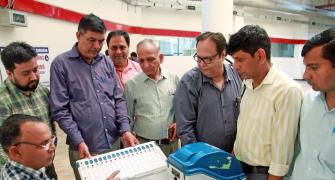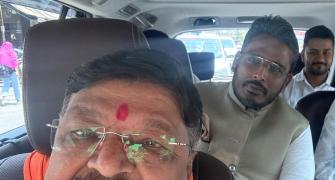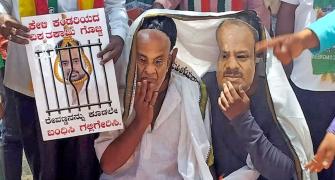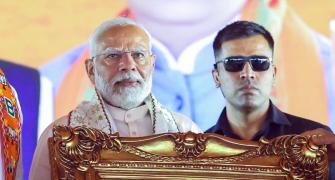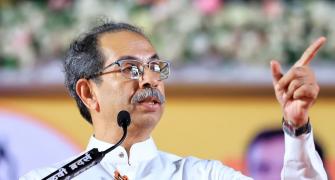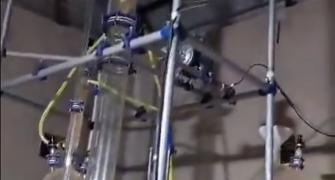Within the next five years, Asian shares will see more than a 50 per cent appreciation in value.
And, if the dollar tumbles further, the share prices can increase further, said investment guru Marc Faber, also known by the sobriquet Dr Doom.
He was speaking at CNBC TV-18's Power Breakfast with top investment bankers and fund managers in Mumbai on Wednesday.
The dollar is doomed in every sense, said Faber, pointing to the ability of central bankers to manipulate the market in terms of fixing interest rates and the housing market.
"The US dollar is a sick and doomed currency and the euro not doing much better," he said.
Faber said: "The world will wake up and realise that money is too important to let central bankers decide. This will result in movement towards the gold standard."
He was, however, quick to add that this will not take place at current levels where gold is quoting at $380 per ounce.
According to him, George Bush will not be re-elected as the US president and the government there need to print more money. "In the worse case scenario, the US government might need to drop currency notes from helicopters," said Faber.
Printing of currency, he said, is what has result in stock markets across the globe booming.
While foreign capital is seemingly flooding into the Indian capital markets, Faber said the amount coming to India is "very tiny". This is even as investments in Asia have increased significantly.
He also felt that India is not making proper use of its huge foreign exchange reserves.
The high foreign exchange reserves in India and other countries such as Argentina, Russia, Brazil and Thailand are simply lying idle and not being put to any constructive use, he said.
The Indian economy can either experience a booming growth rate of 12-15 per cent or be doomed to grow "very, very slowly" with a maximum growth of five-six per cent. The bureaucracy will hold the key, said Faber.
"The (Indian) government is the biggest impediment to economic growth. Unless the bureaucracy is dismantled, the maximum growth can be five-six per cent," he said.
On the issue of restriction on foreign holding in the country, Faber said it makes little difference as to who owned the stake.
"Essentially, what's important is that the asset produces and creates employment for the local market. It matters little as to what the earnings are then used for," said Faber.
Comparing India with China, Faber said the Chinese government, though not democratic, has been very pragmatic and proactive in developing infrastructure.
This, he said, is needed to produce goods and services efficiently.
Presenting his theories on where global markets are headed, Faber predicted rising interest rates, significant increase in commodity prices and continuous reliance on printing of currencies.
Global economies are headed for a huge reversal in trend. "We are in for accelerating inflation in the years to come.
This will see certain section of economies facing deflation. Interest rates could go back to 15-20 per cent," he said.
The cut in interest rates by central banks, which has flooded the system with liquidity, will result in a credit bubble.
He said. "Had the Federal Bank of the US had not cut interest rates, we would have seen a recession in the US."
Commenting on the impact of Chinese entry into world trade, Faber said with India gearing up in the service sector, it will see lot of jobs shifting from developed nations to India.
According to him, the US and the United Kingdom should shift the entire social security and tax collection system to India.

